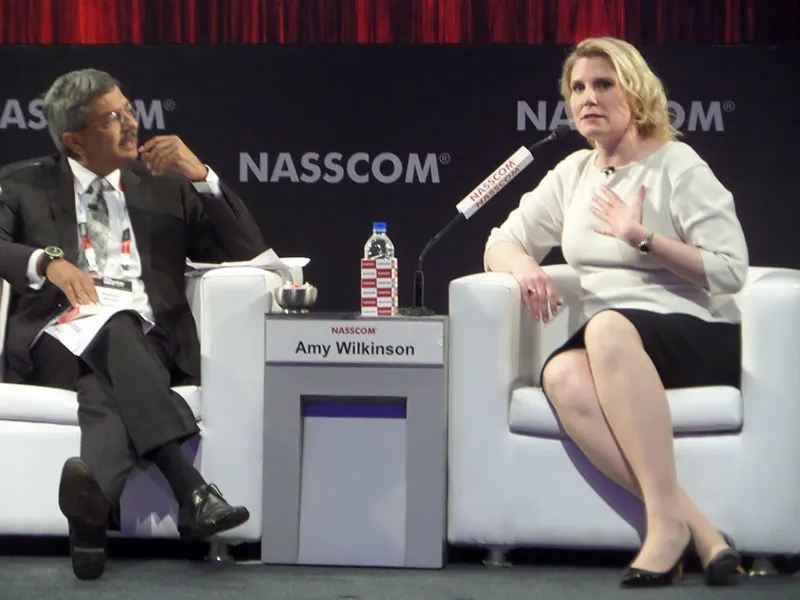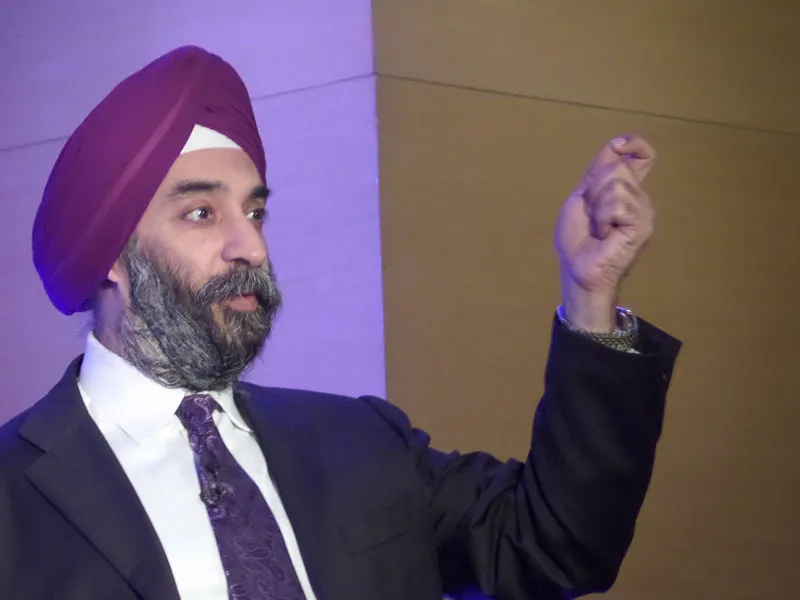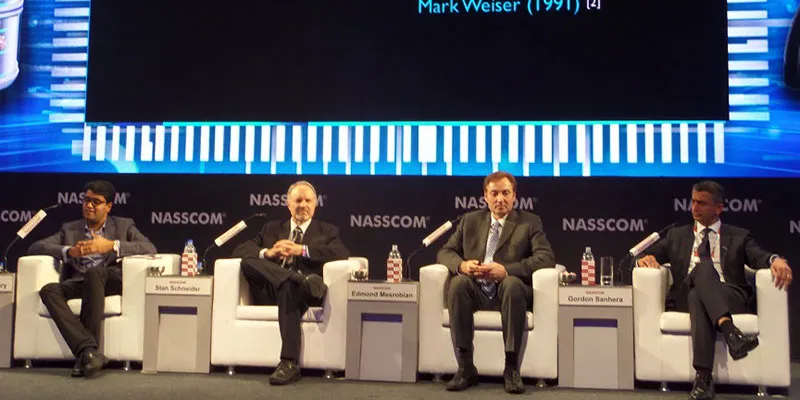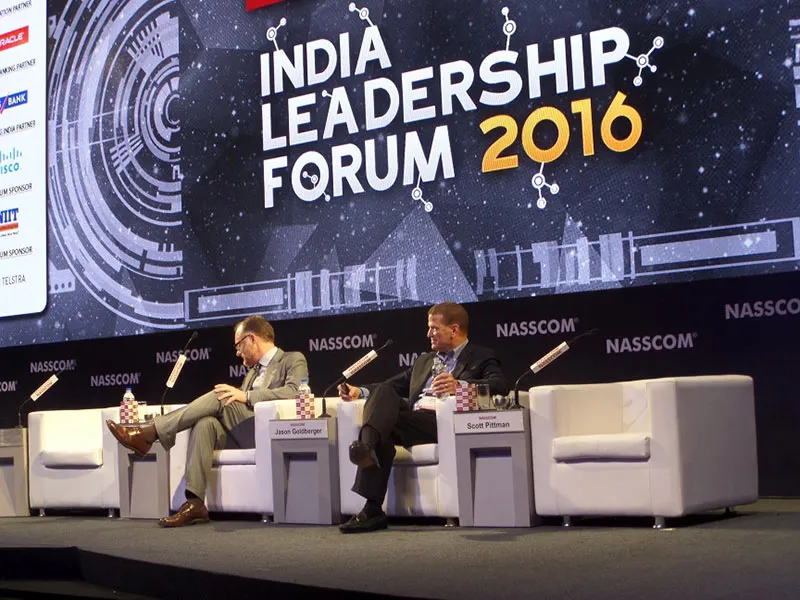Learn, unlearn, re-learn: innovation tips from India Leadership Forum 2016
Startups of today risk becoming the fossilised incumbents of tomorrow – and the incumbents of today will become the dinosaurs of tomorrow – unless they continually learn, unlearn and re-learn. Founder teams will need to be diverse to master and ride the new waves of technology, and India is becoming a major entrepreneurial hub in this regard, according to speakers at NASSCOM’s India Leadership Forum 2016 held this week in Mumbai.

Diversity for debate
Innovation teams need to have diversity and a high tolerance for debate. Beware of ‘yes men,’ cautioned Amy Wilkinson, author of ‘The Creators’ Code’ (see my book review). Innovators also need to learn to live with the tension between inner conviction and outside market data insights.
Founders should treat failures as learning opportunities and not setbacks. “Set up your threshold for failure risk,” she advised. Six key founder skills identified in her research are being able to find the market gap, focus on the horizon, iterate, fail wisely, network extensively, and donate generously.
The new marketing
Marketing will shift from campaigns to conversations, from rational pitches to emotion-centric storytelling, and from outbound channels to inbound content, said Mohanbir Sawhney, Director of the Centre for Research in Technology and Innovation at Kellogg University. In the product-as-a-service world, marketing is ‘always on’ and not focused just on major releases.
All brands will become publishers and storytellers. “For content to be engaging, it must provide information, convenience, entertainment, inspiration, social value and community value,” he said. Brand stories, in turn, should focus on customer needs, aspirations and participation as well as the company’s own employees, partners and history.

“In good storytelling, the brand is like oxygen – everywhere but invisible,” Mohanbir said, pointing to stories and sites of Diabetes Exchange, Adobe CMO, Google, and Microsoft Azure as examples. “Stories are contagious, timeless, sticky and inspiring,” he said.
The leader today has to be an evangelist, storyteller, and coach, added Ian Buchanan, CIO, Barclays.
Exponential technologies
Artificial intelligence, industrial biology, additive technologies and smart IoT (Internet of Things) were identified as exponential technologies to watch, by a range of speakers. It is important to track not just technologies but their impact on consumer expectations, and a number of useful mapping tools have emerged such as the Consumer Trend Canvas (see my book review of ‘Trend-Driven Innovation’).
“Artificial intelligence will elevate human intelligence by automating the lower-level tasks,” said Adam Davine, VP, WorkFusion.
Tasks which require creativity and initiative may largely be in the human realm, but AI will take over more and more of manual and repetitive tasks, said John Granger, GM, IBM. The panellists also joked that next year, the conference would have a robot on the panel!
“Every human being is a data generator,” said Rajat Paharia, Founder of BunchBall and regarded as a pioneer in gamification. Tracking customer and employee data will help external and internal gamification, which can creatively improve customer loyalty and organisational performance in collaboration, learning and commerce.
Interconnectivity will successfully disrupt each domain, and as these sectors are bridged more new disruptions will be thrown up. “Digital disruption gives economic value, experience value, and platform value,” said Mohanbir Sawhney.

In the smart machine era, we will eventually see regulatory changes like safety certification for drones, said Stan Schneider, CEO, RTI Inc. The network is the computer as well as the grid, road and even car. Cross-industry IoT networks will spur new kinds of innovation and business models. IoT itself has consumer and business components, and there is even an ‘Internet of Living Things’ with bio-sensors and connected probes.
There is no shortage of technologies promising to be the next big thing, said Scott Pittman, CIO, Dell. But exponential technologies are those which radically change our perceptions and behaviours, and empower the masses and not just a few niche communities.
Keeping up with the next emerging technology is like dealing with traffic in Bengaluru, joked Scott. “You never know which car is going to hit you, avoid you, or pick you up,” he said.
Indian entrepreneurial talent: startups, accelerators and beyond
“India is a major hub of technical skills and entrepreneurial culture,” said Jason Goldberger, President of Target.com and Mobile. “There is no better time to be in retail or technology. The future of retail has yet to be fully imagined,” he added.
“India has developed a vibrant and fast moving startup scene, especially in the last two years,” Jason said. Target has launched an accelerator in Bengaluru to work with retail-tech startups such as Discover Dollar, Find Me A Shoe, House of Blue Beans, Whodat and Visarity.

“We don’t believe we are the only innovators, so we work with startups,” said Edmond Mesrobian, CTO, Tesco. They have teamed up with startups who have developed robotic solutions to scan shelves for excess empty spaces, so that they can re-stocked.
Such digital transformation can help close the gap between actual, expected and perceived customer experience, said Scott Liewehr, CEO, Digital Clarity Group.
To work in such a creative mode, corporates can also acquire startups, or transform themselves to become more agile and experimentative, said Mohanbir Sawhney (see my framework of ‘15 Innovation Tips: How corporations can engage with startups’). Incumbents have the advantage of scale, performance efficiencies, strong brand and physical presence that many startups don’t have – thus making them potential partners in co-creation.
Many such transformations and disruptions will speed up in India. “India won’t leapfrog in the digital era, it will pole-vault,” said Mohanbir, pointing to the rise of the mobile Internet as an example.
“I am always humbled by the indomitable spirit of India,” said Gordon Sanhera, CEO, Oxford Nanopore Tech.







